Five questions to ask yourself before you put your pond to bed
From damselflies to salamanders, various wild critters benefit from the food, water and shelter that a pond can provide. Canadians benefit from ponds too. Researchers at the Environment and Human Health at the University of Exeter Medical School found that being close to a body of water can cause stress hormones to plummet and can reduce heart rate too. For all the good your pond does for you and the wildlife that visit your backyard, give back to it by setting it to bed for the winter properly.
1. Is your pond deep enough?
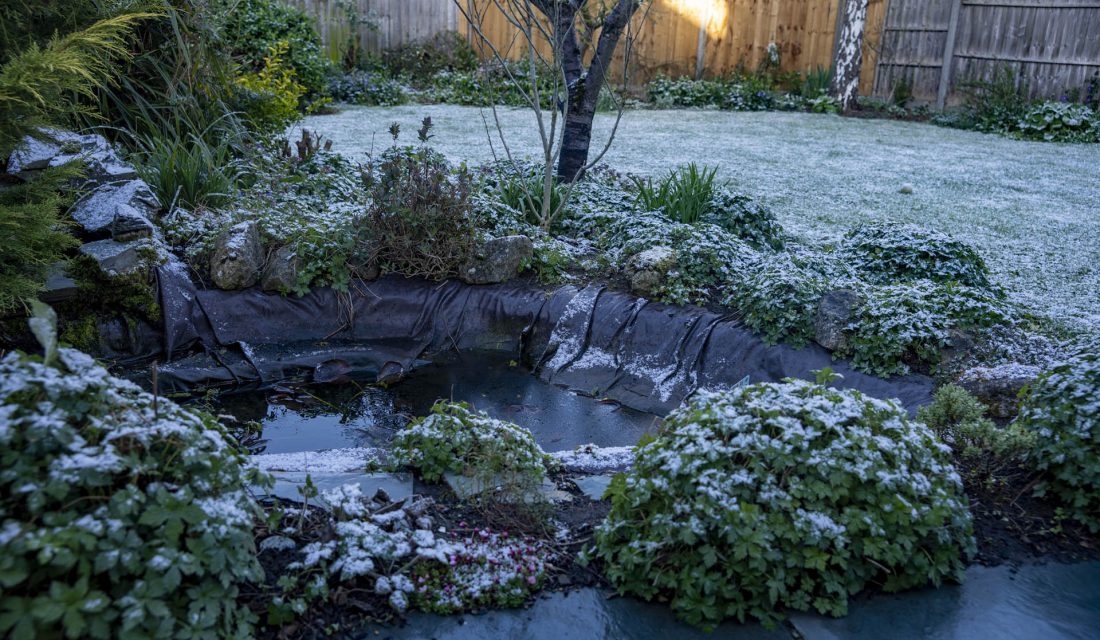
In order for frogs to survive through the winter in your pond, the water must be at least two metres deep. Even if you think your pond doesn’t have any frogs in it….just wait it out. It turns out that tadpoles don’t turn into frogs overnight. Nope! The transformation from tadpole to frog can actually take up to three years to complete. So you don’t want to take any chances. Makes sure they have enough water to get through the winter months.
2. Got soil?
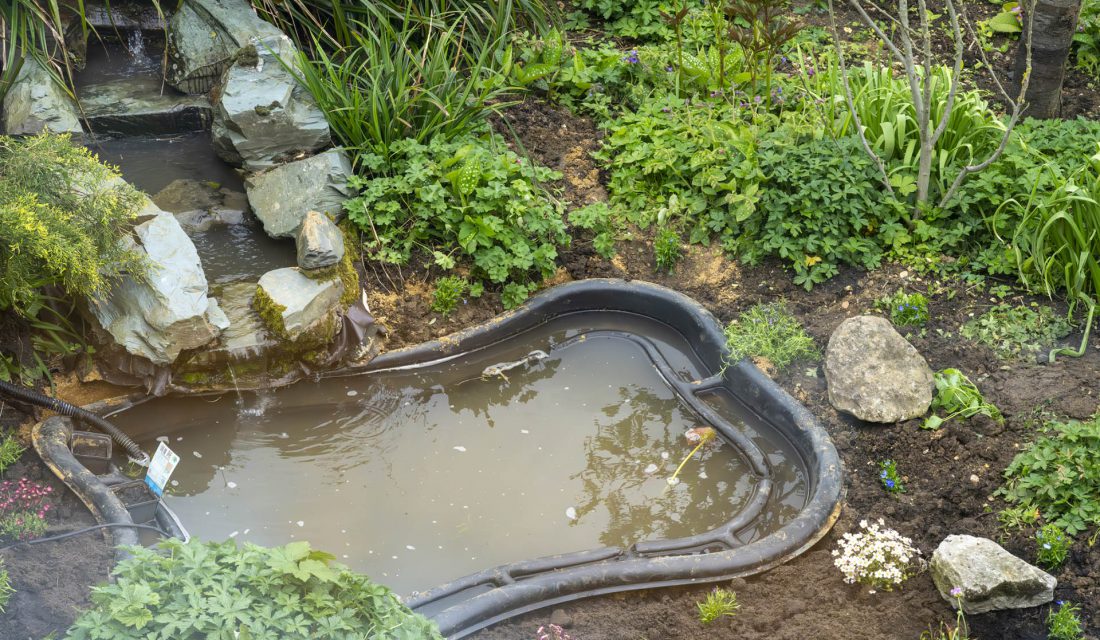
Your pond should have a layer of soil over the liner. Especially if you want to host frogs over the winter. Frogs will swim to the bottom of the pond, dig into the soil and rest there until the weather warms up. They simply won’t be able to hibernate properly if the pond’s liner is bare.
3. Have you retired your lawn mower for the year?
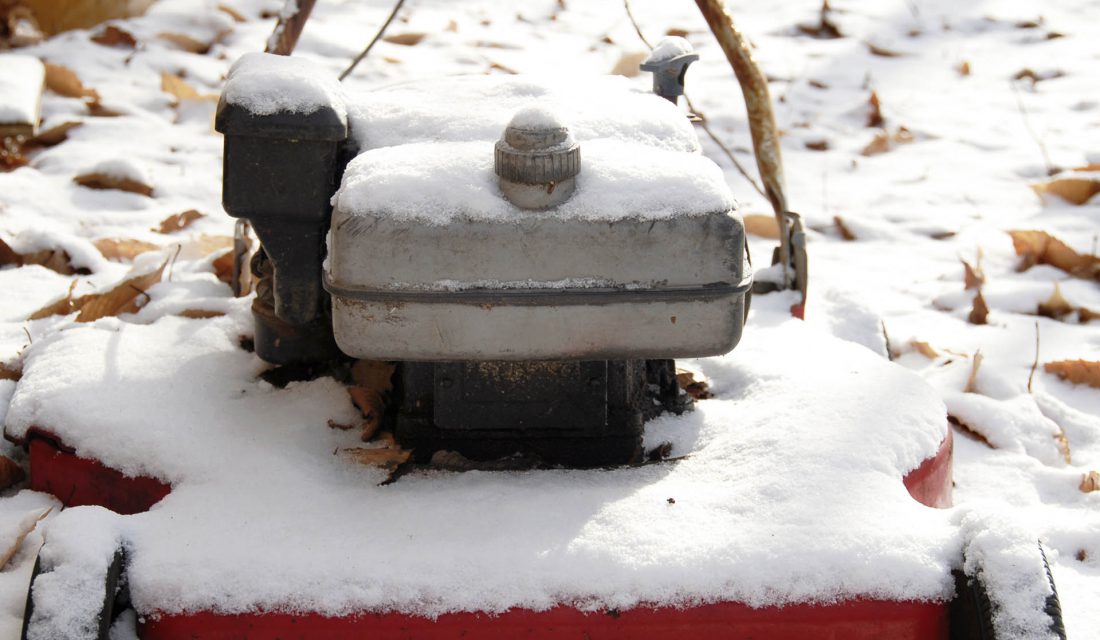
You really shouldn’t be mowing around your pond at this time of year. The grasses and other flora that surround your pond need to be kept long as we enter the colder months. Why? They’re not just pretty to look at! These plants actually serve the important function of stopping any nasty runoff from entering into your pond. If you want the quality of the water in your pond to be as clean as possible, avoid trimming this area. That goes for the summer months as well!
4. Are there any dead leaves floating in the pond?
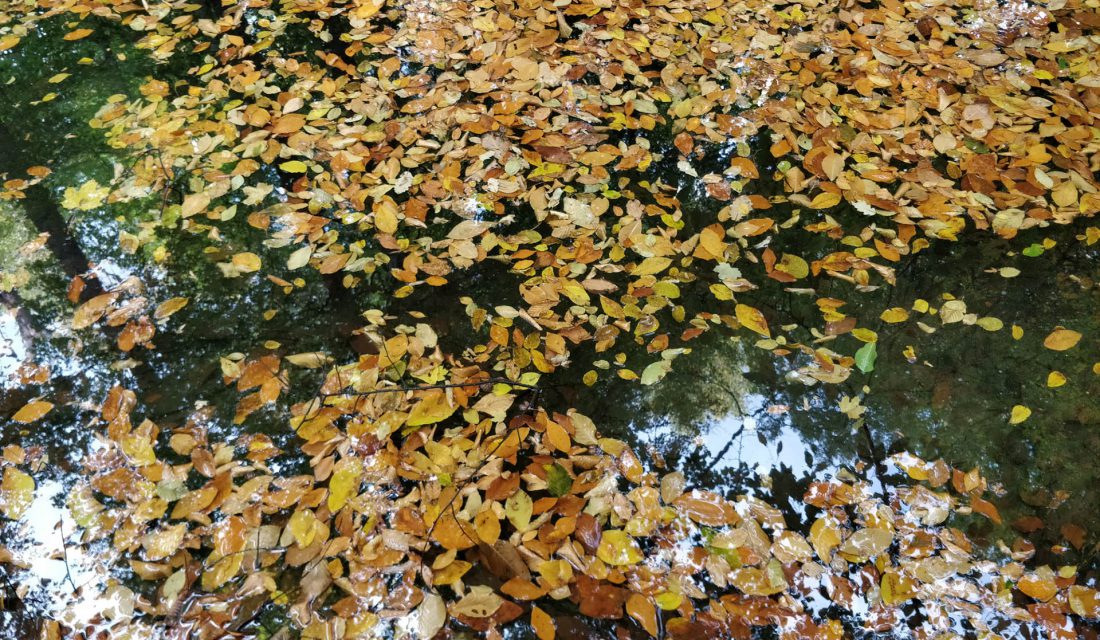
Every couple of days or so, you’ll want to check your pond for leaves. Be sure to remove any leaves you notice floating around in your pond before the winter comes. Otherwise those leaves will decompose and will be that much harder to clean in the spring.
5. Do you have fish in the pond?
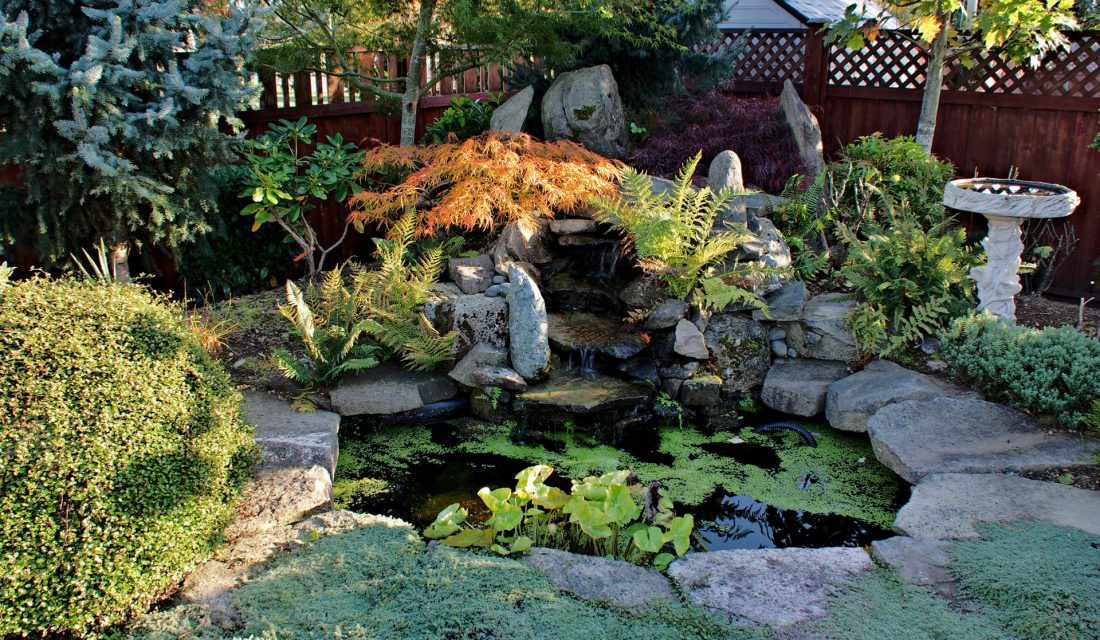
If you have fish in your pond and don’t plan to bring them inside for the winter, you’ll want to add a pond heater as well as an aerator to your pond to stop it from freezing over when the temperatures get frigid.
And don’t forget to stop feeding the fish when the pond’s temperature dips below 10°C. Why? Fish slow down in the winter. Quite literally! Their metabolisms plummet and they aren’t nearly as active as they are in warmer weather.

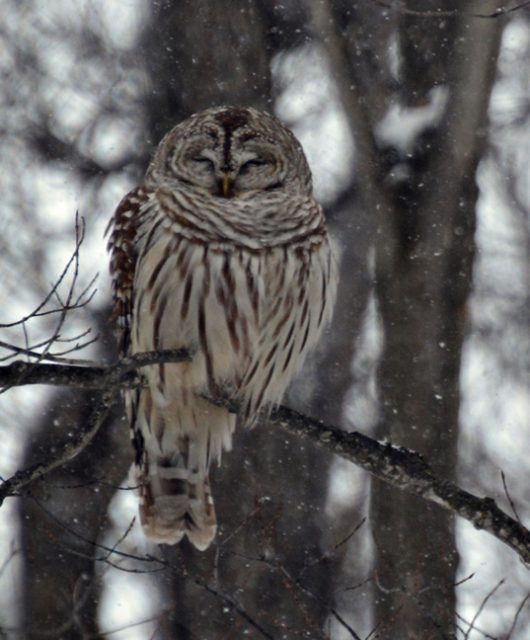

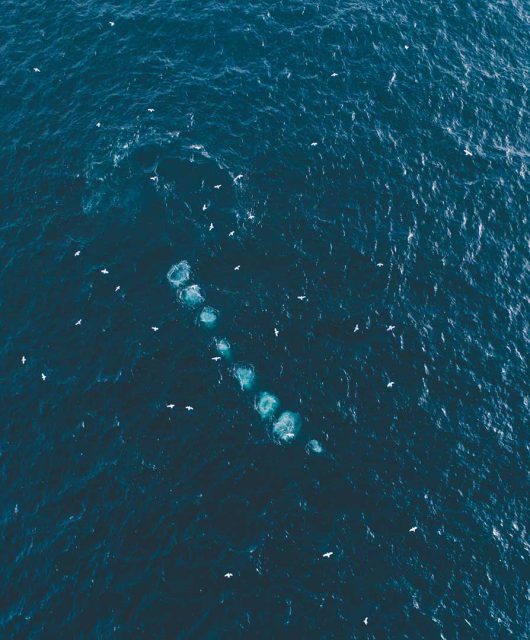
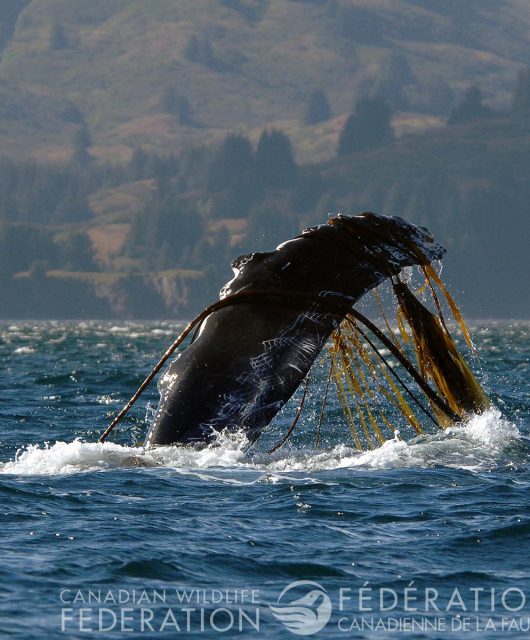
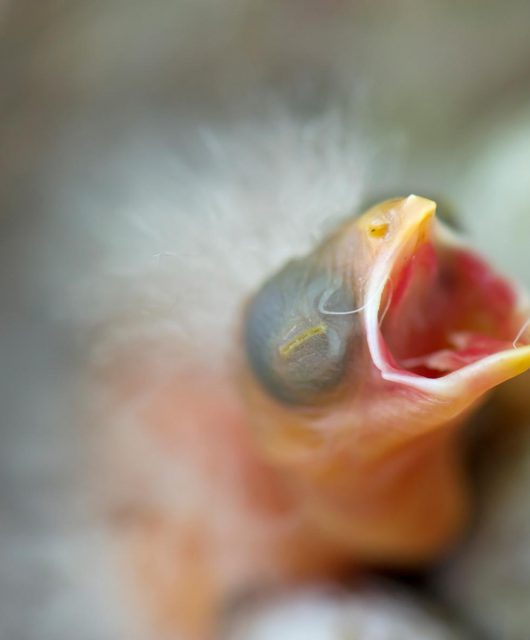
2 comments
hello. this is a question rather than a comment. I have a small pond for frogs. no fish. it is at least 2 meters deep. should I run a pump [there is a small waterfall] or an aerator or a de icer to best look after the green frogs that are there. thanks.
Hello! Sometimes frogs show up for the summer but spend the winter elsewhere. As the pond is 2 meters deep, it won’t freeze to the bottom so if the frogs choose to overwinter there, they will probably be okay, as they tend to pick what they think are good overwintering sites. Hope this helps!